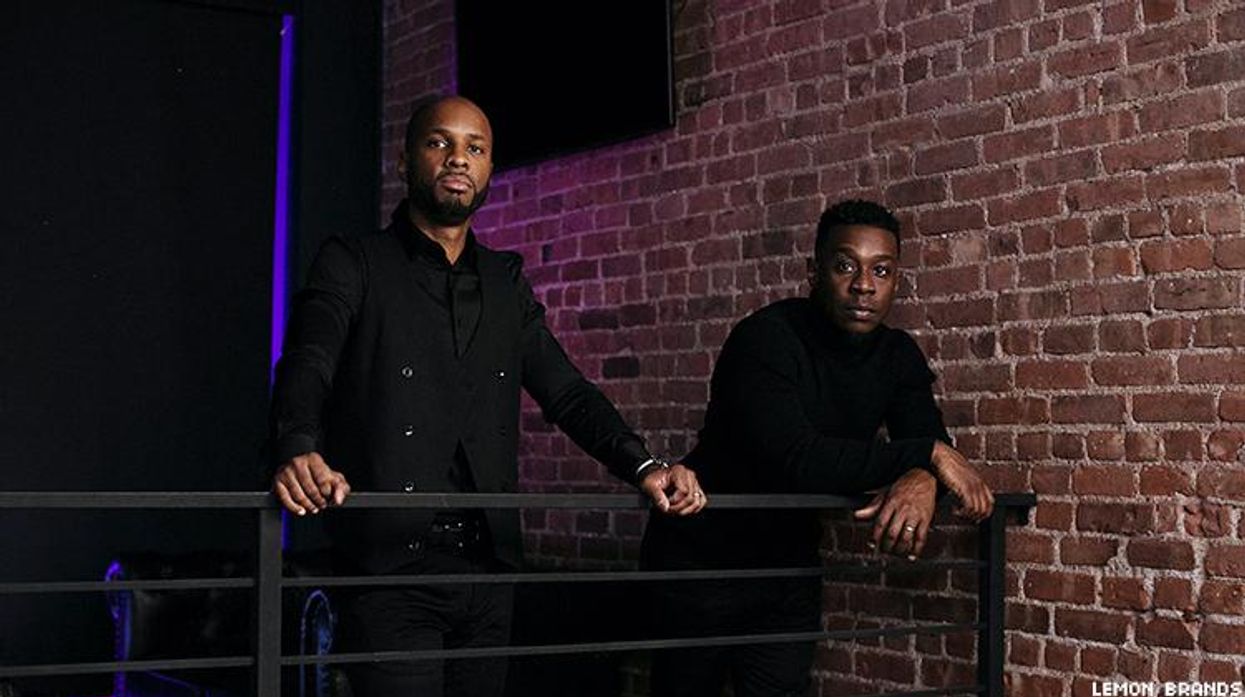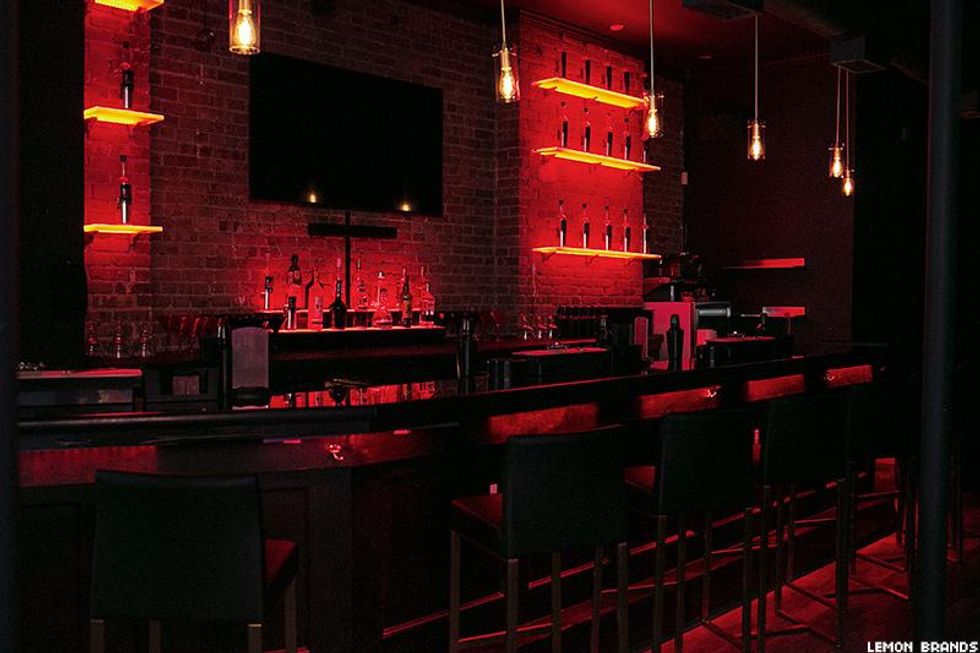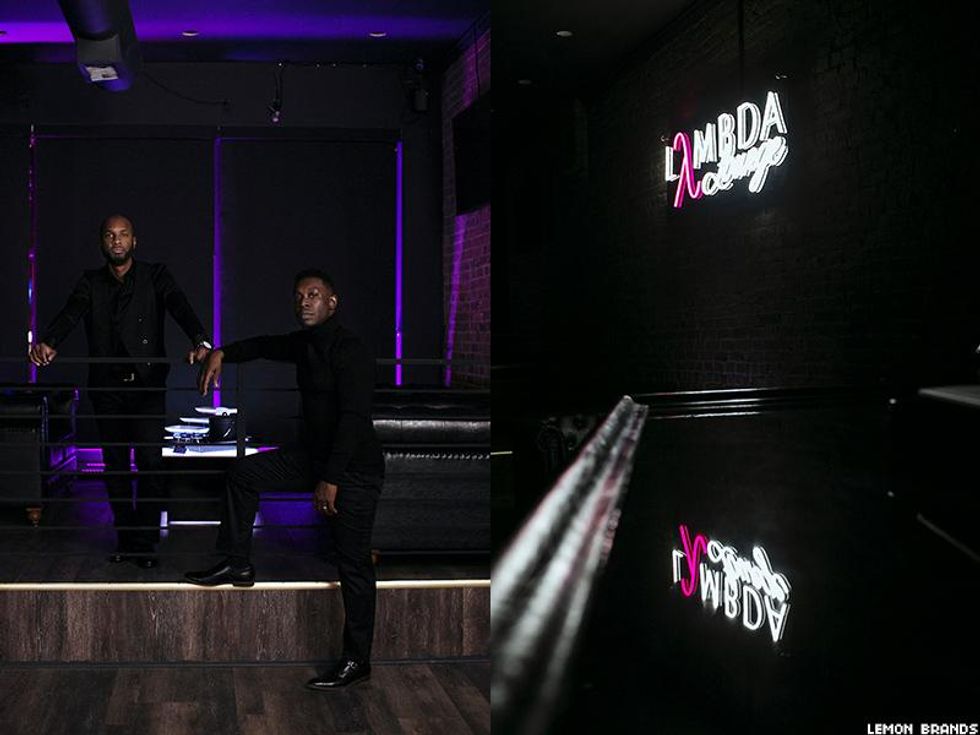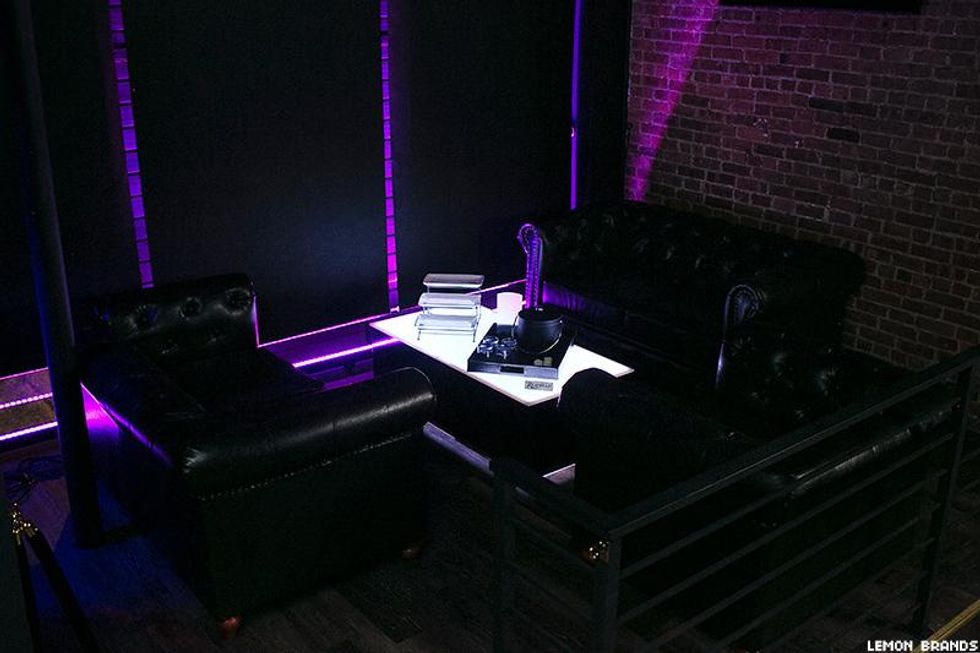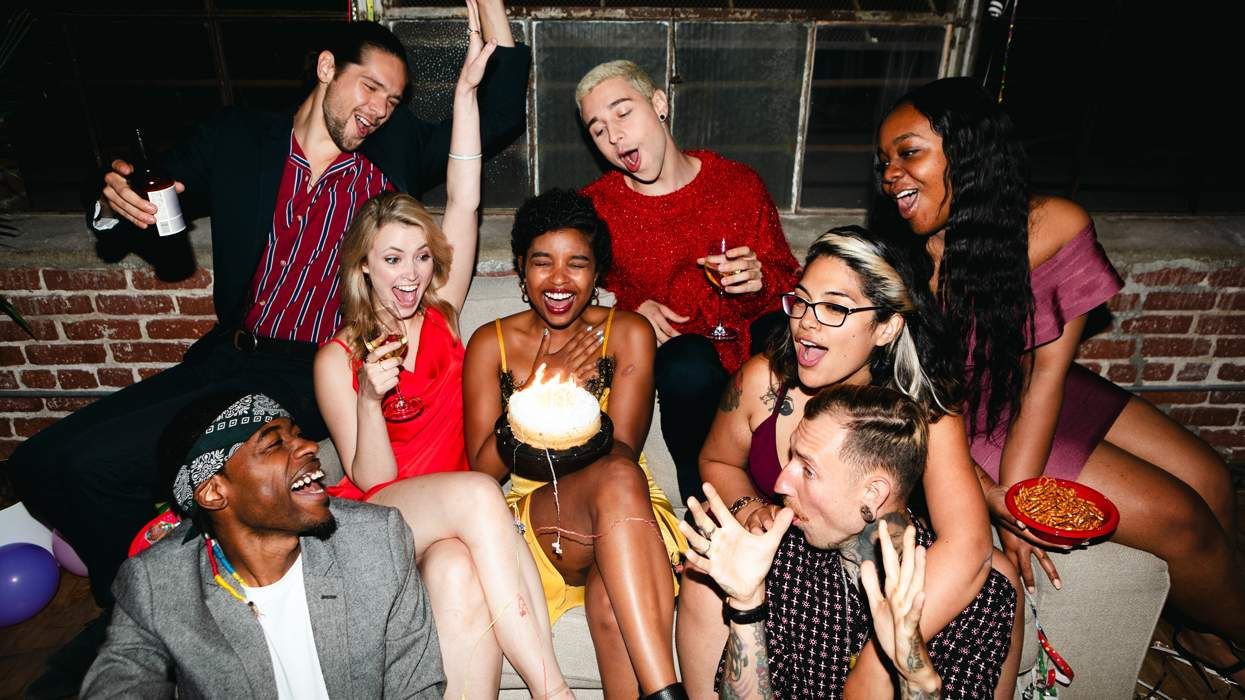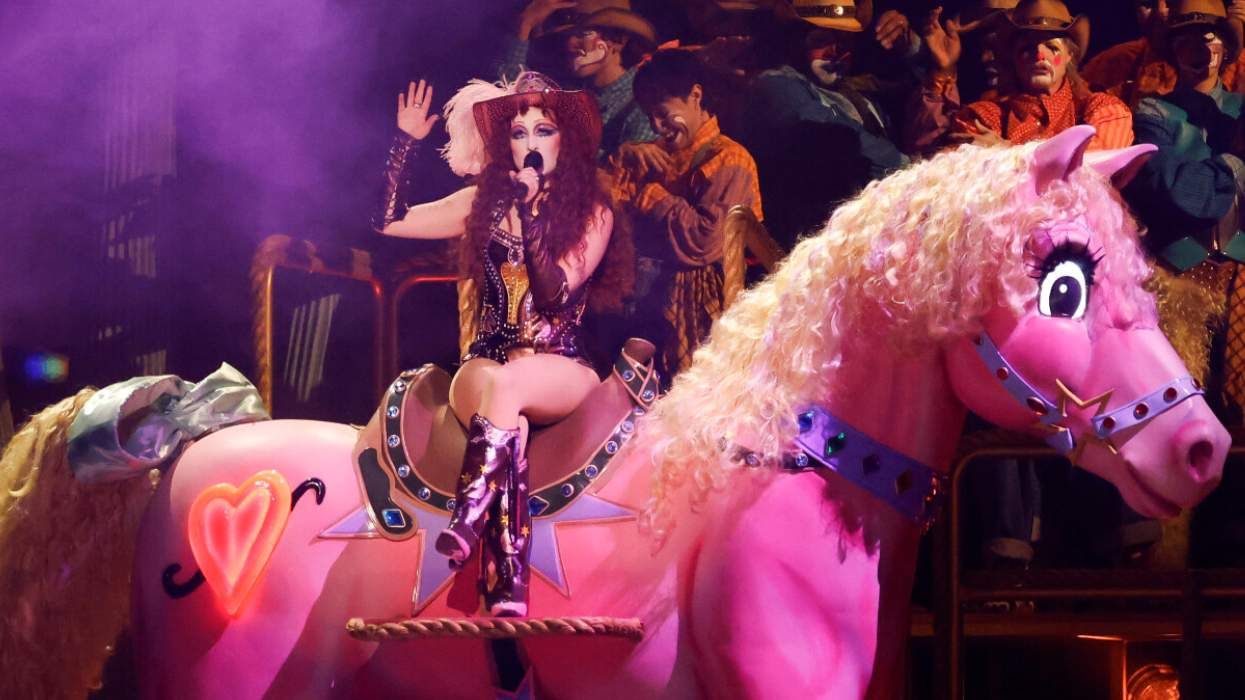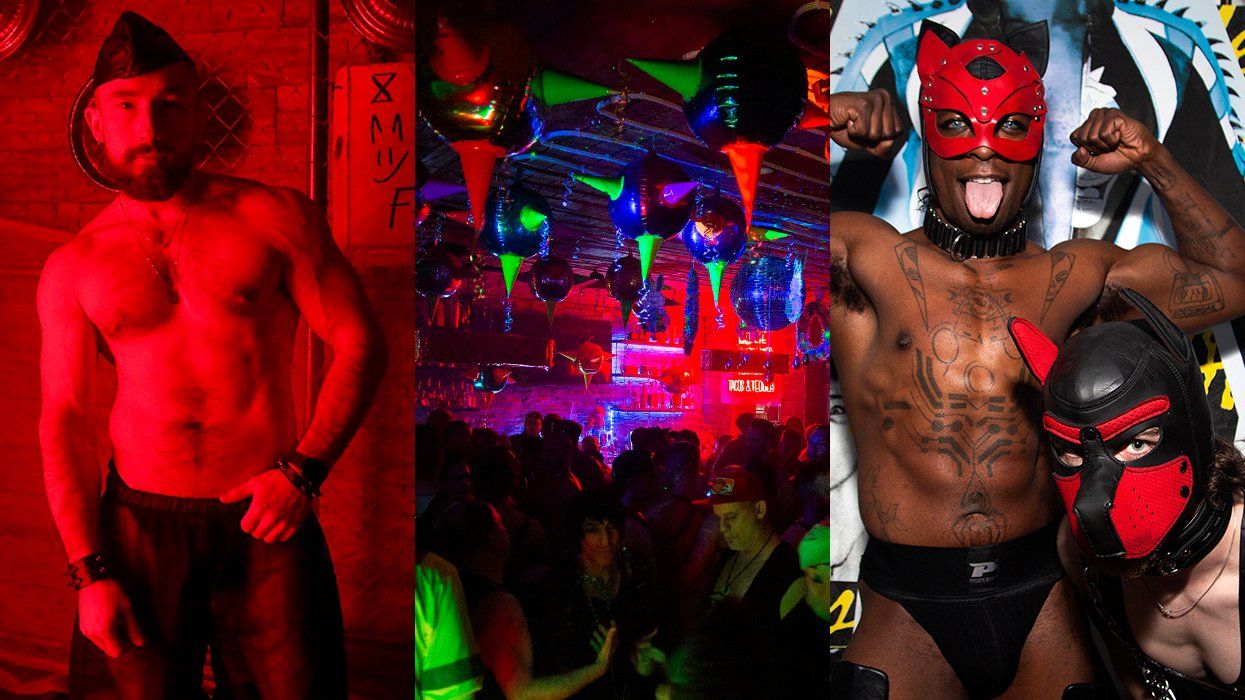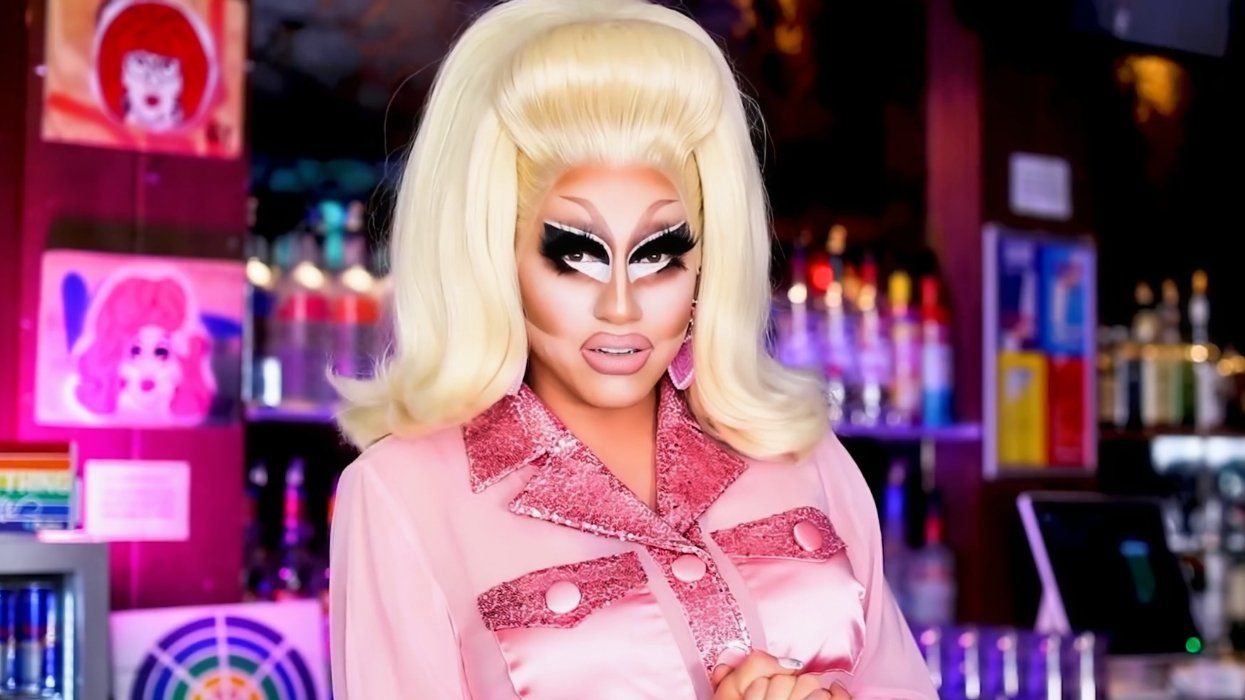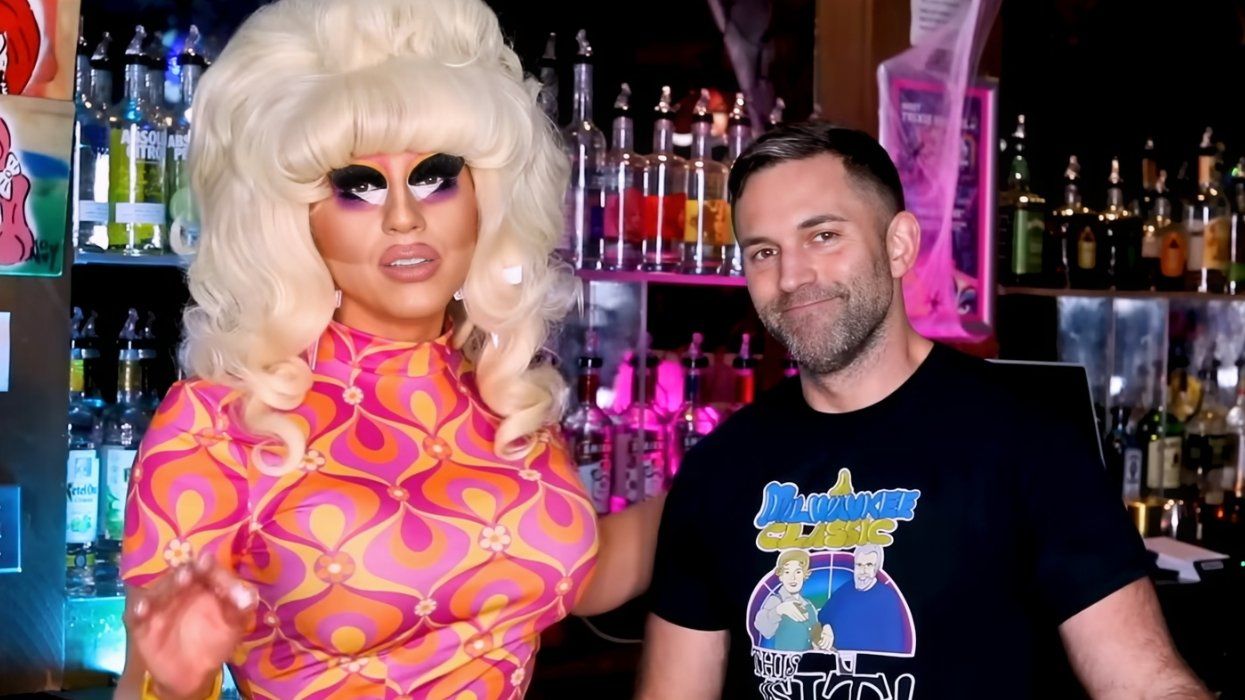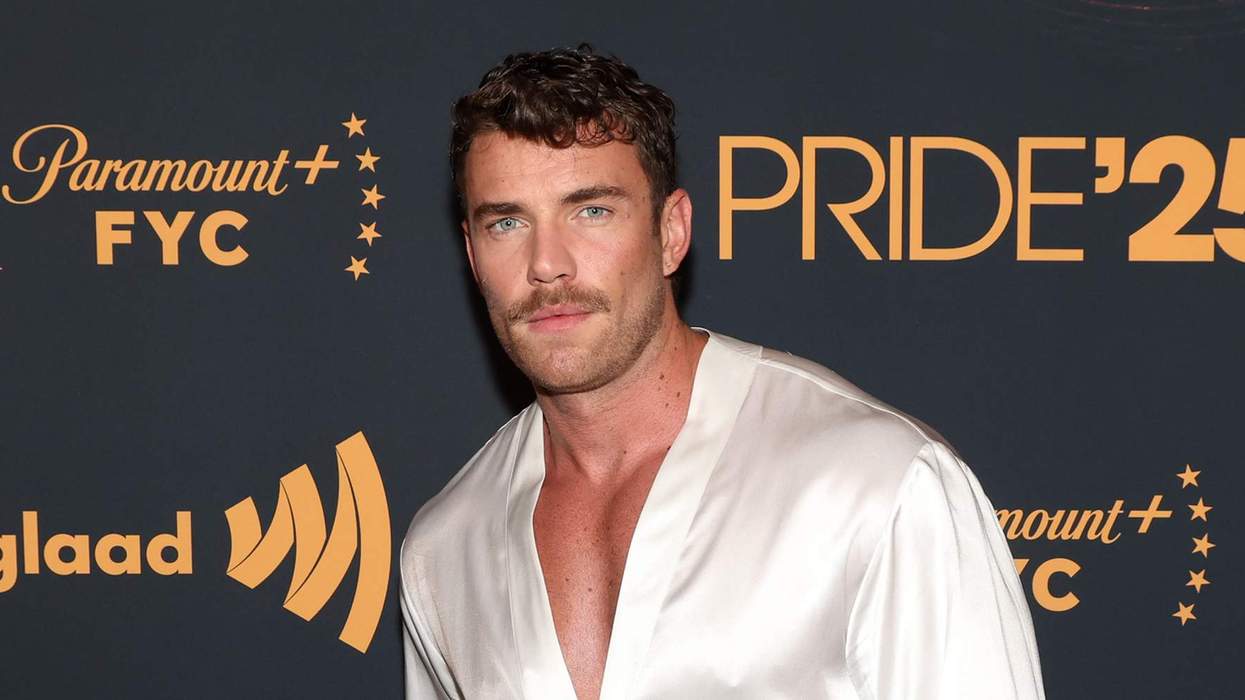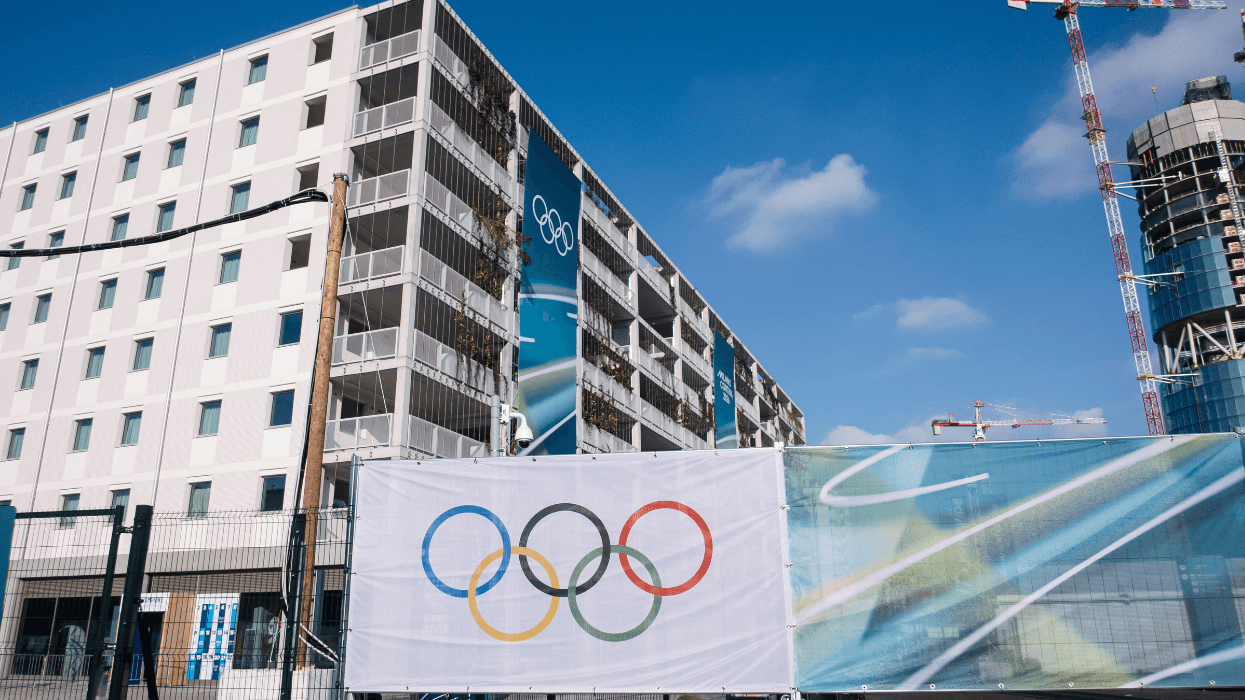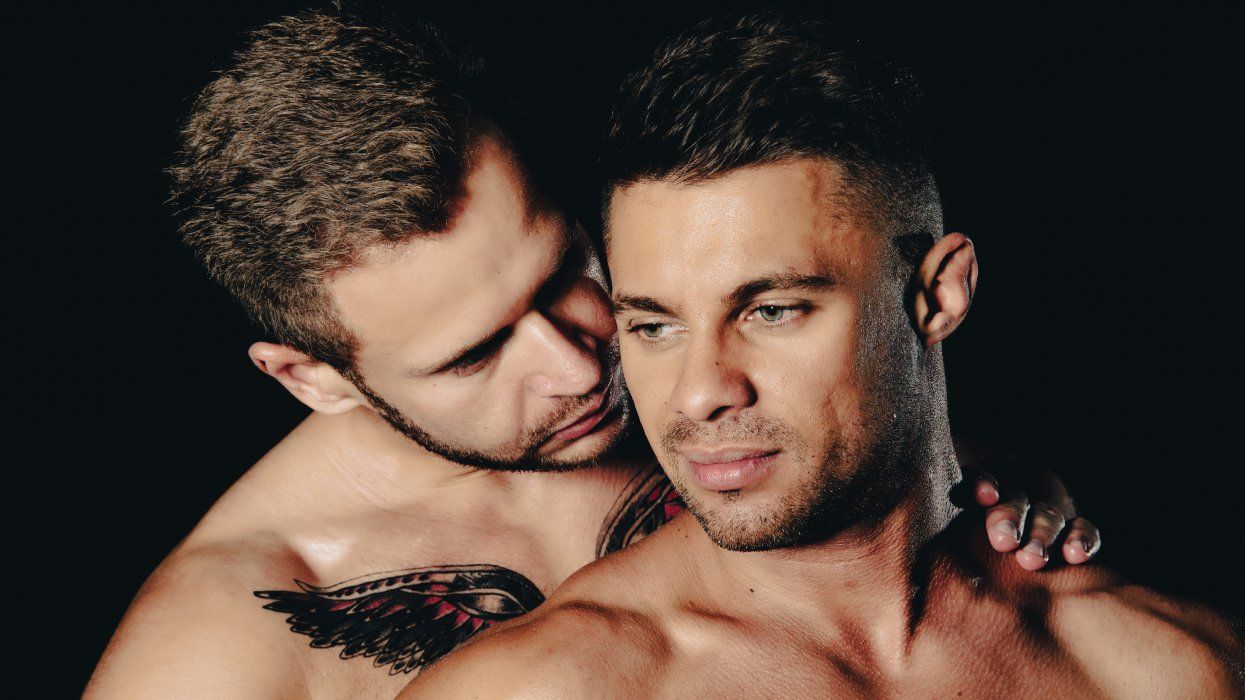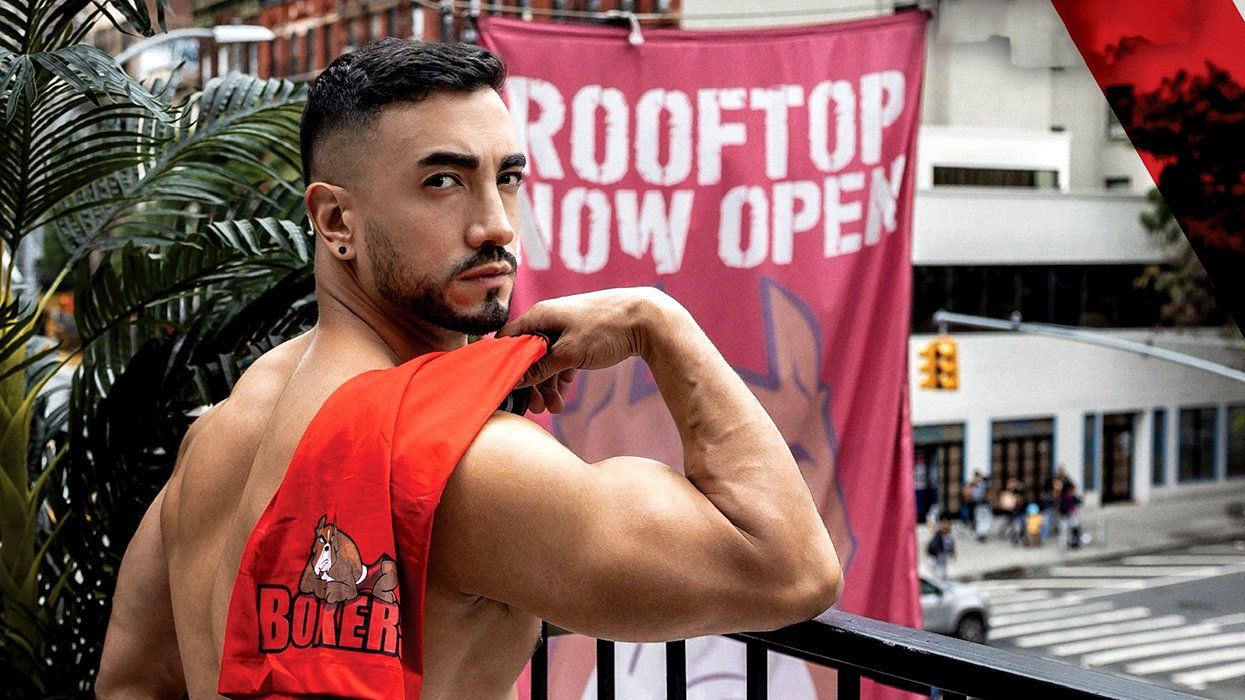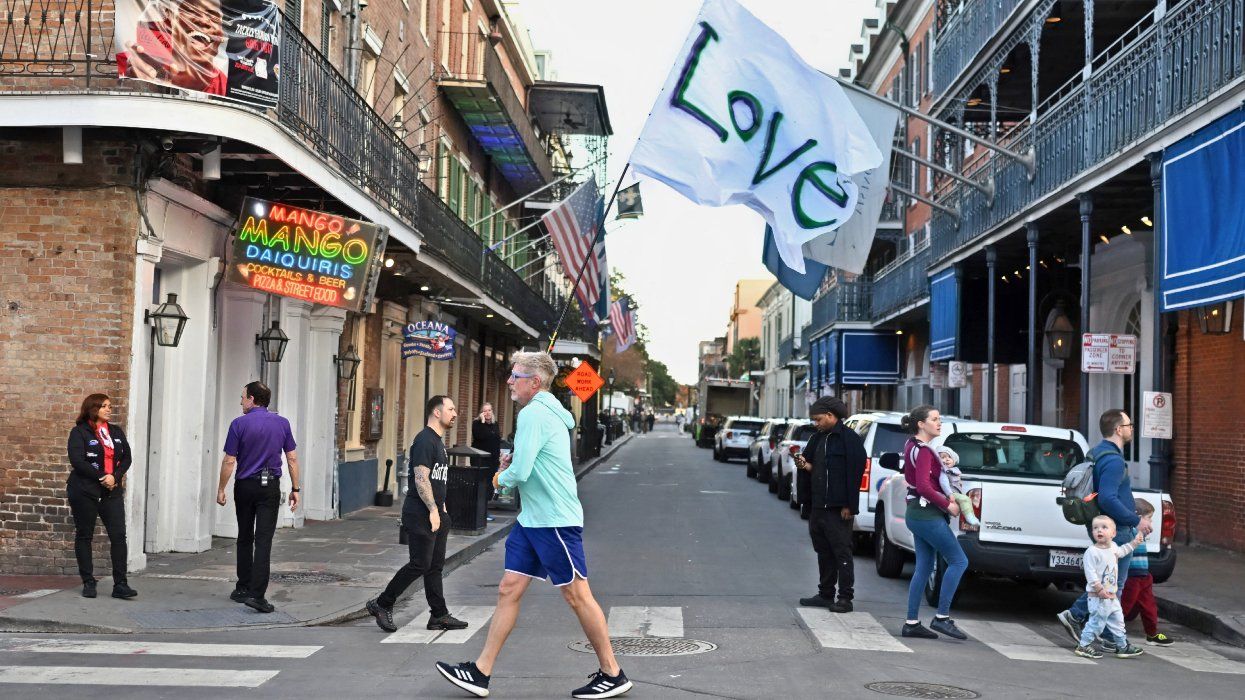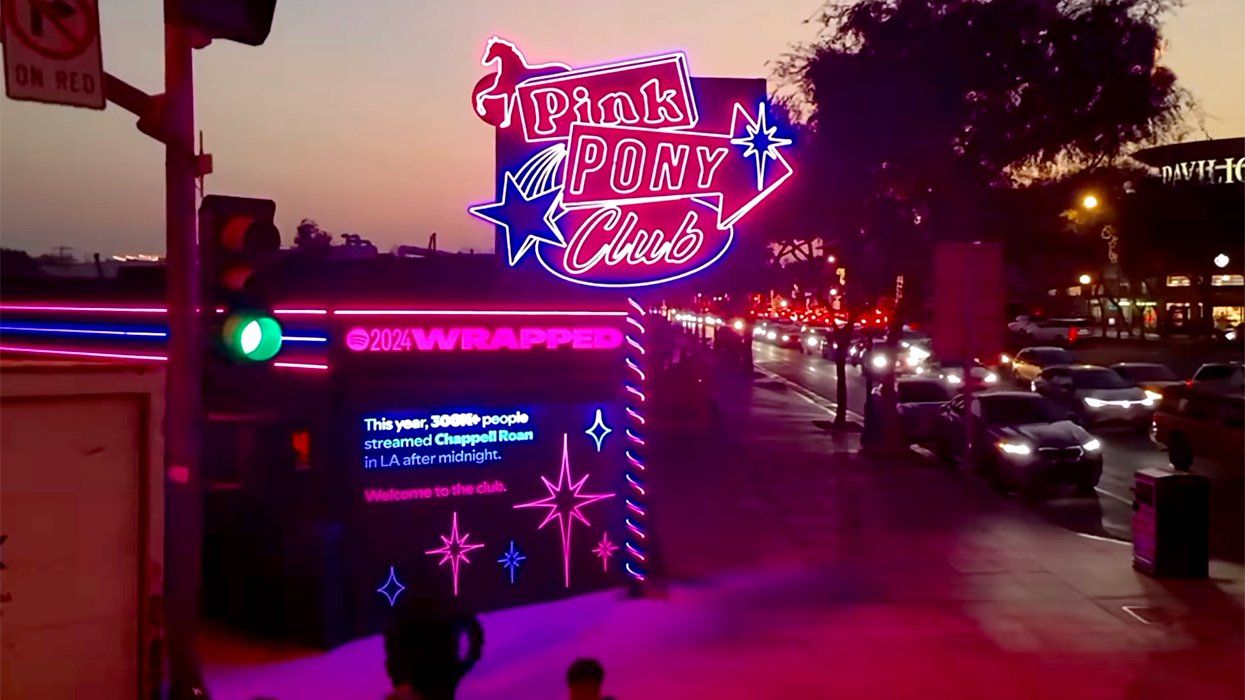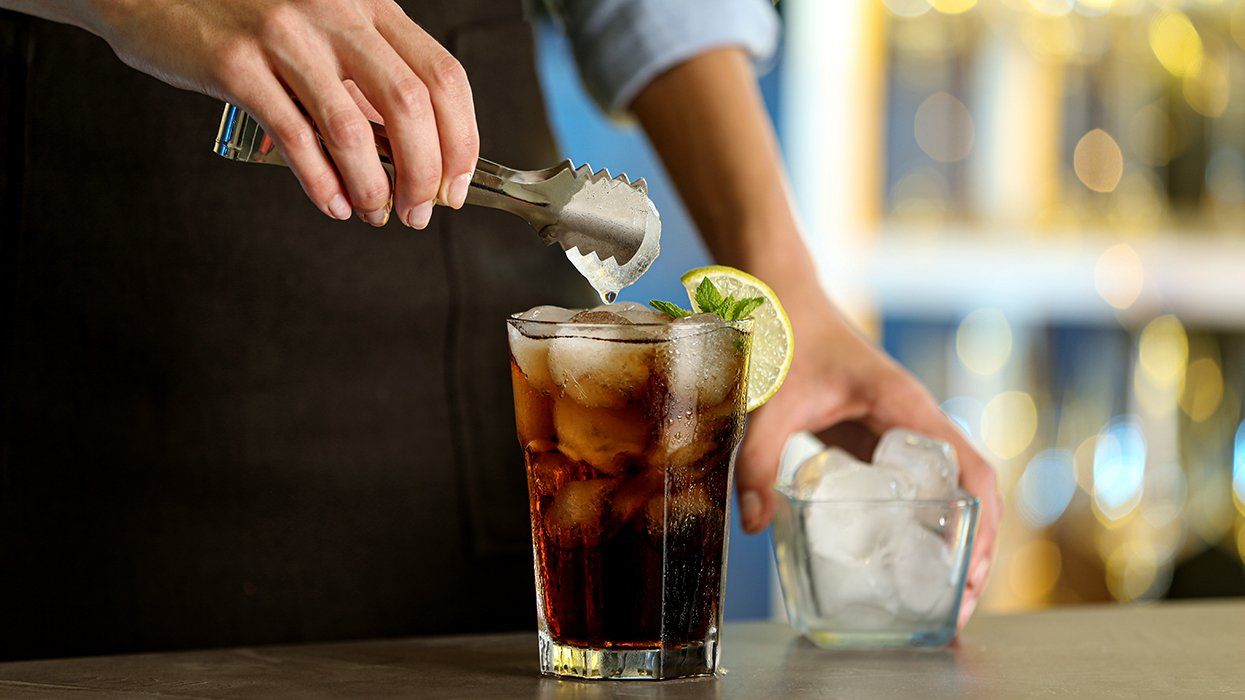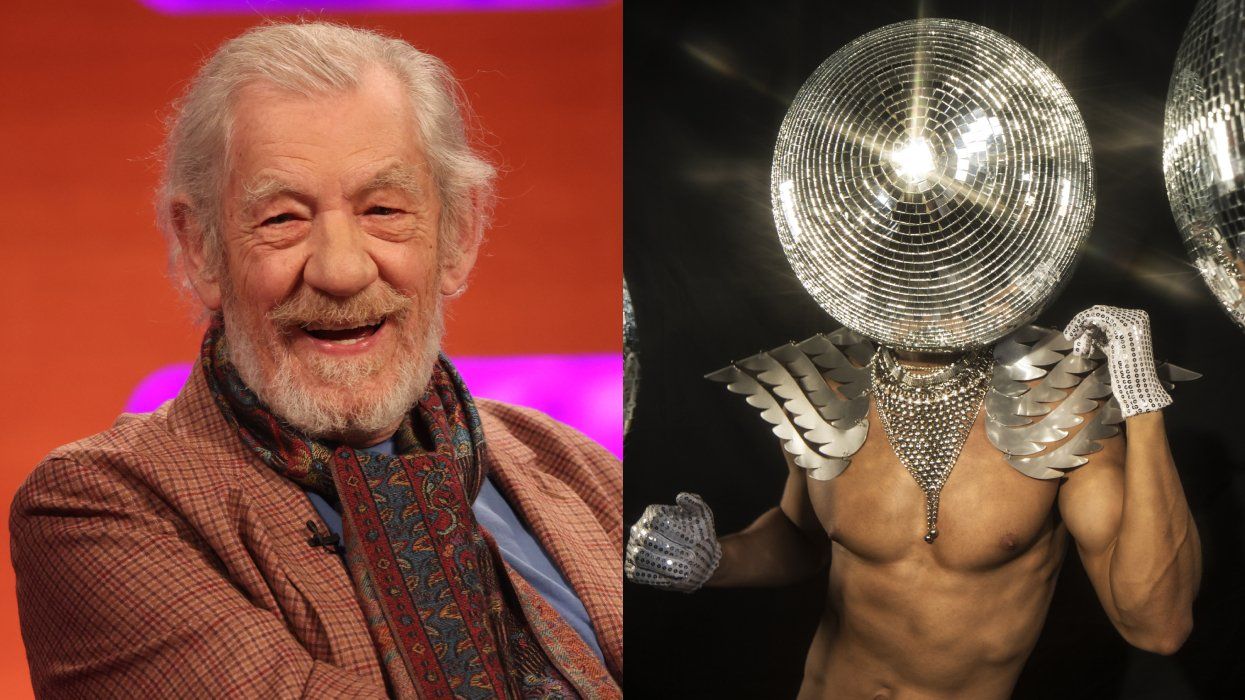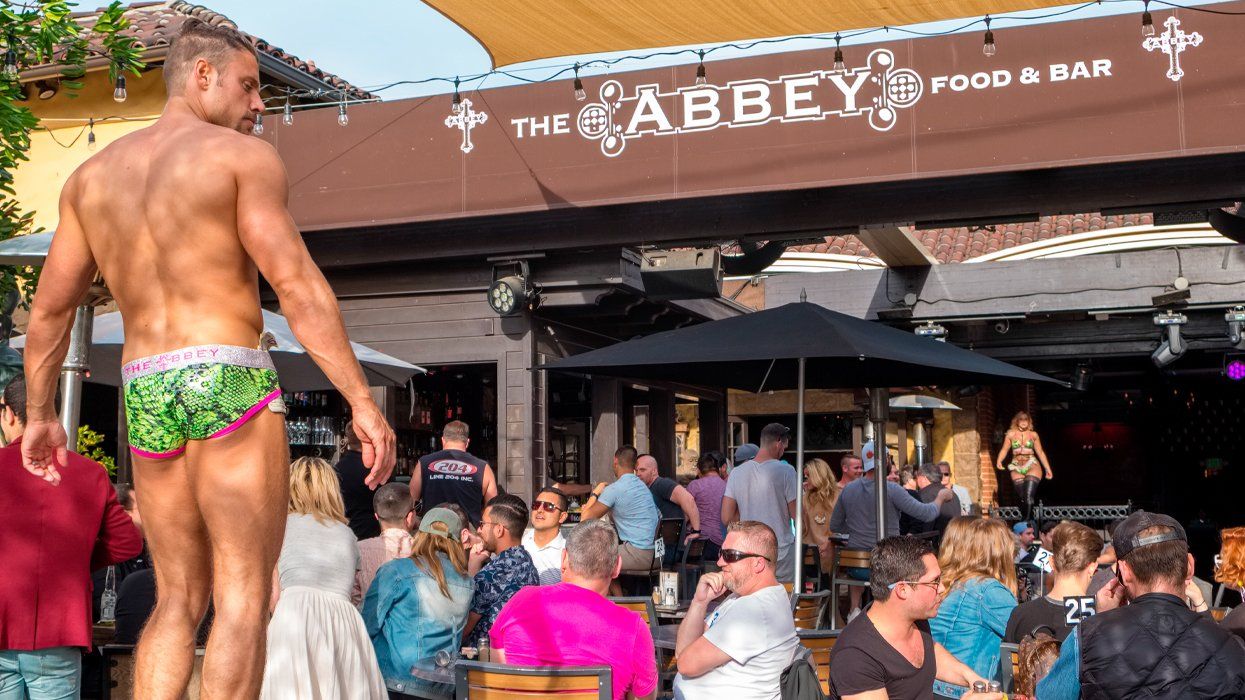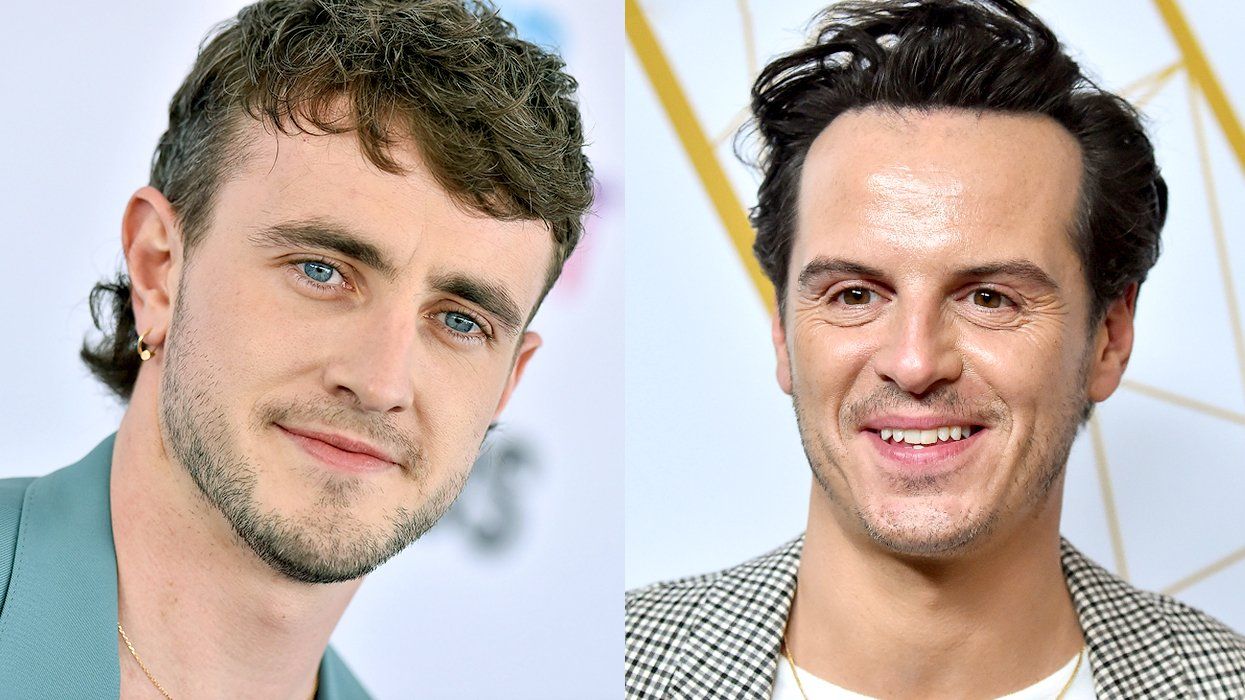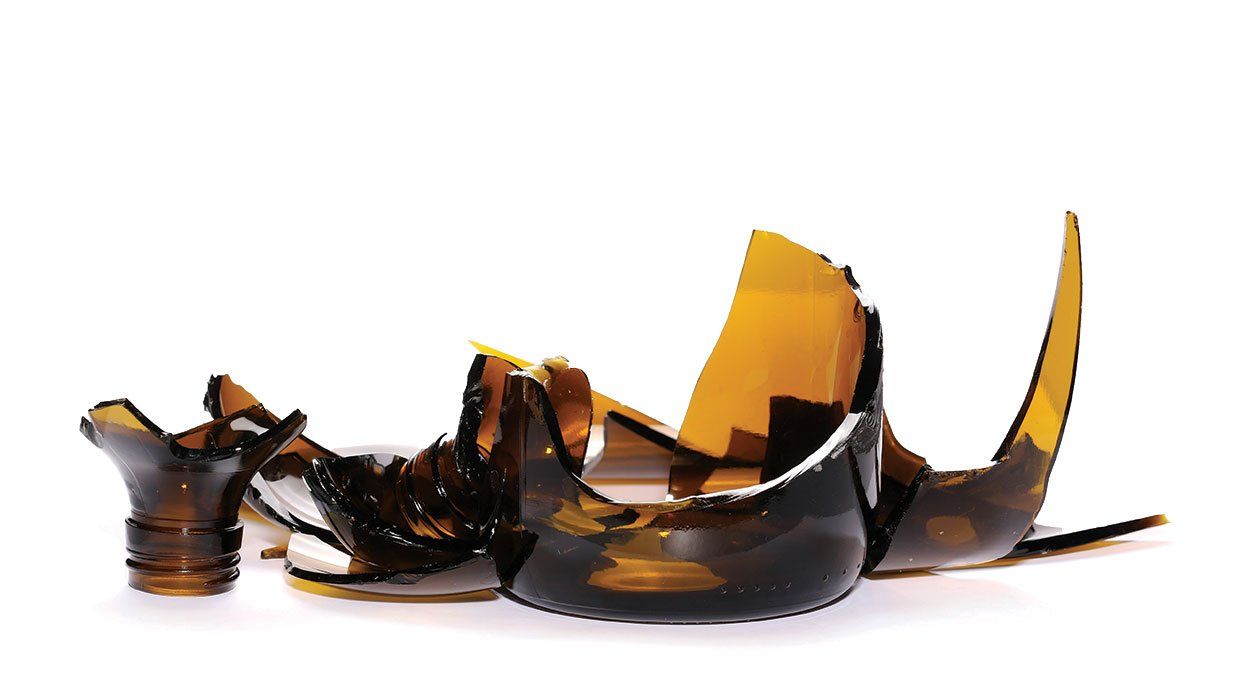With the ongoing global pandemic, businesses are shuttering left and right. The social distancing guidelines have had an outsized impact on queer and trans night life in particular. And for the most intersectional of those spaces: the pandemic has been a death knell. In New York City, there has been one Black-owned LGBTQ+ nightlife space, Alibi, after the 2019 closing of Langston's. Alibi, which was saved from closure last month by crowdfunding, was set to be joined before quarantine by a Lambda Lounge. And though the new Harlem-based spot had to delay its opening, this month it finally opened in a limited capacity.
Here, we talked to the married couple behind Lambda Lounge, Charles Hughes and Richard Solomon, about getting into the business and the importance of the space.
You guys getting into business together was interesting, right? You launched a vodka line and got your first shipment the day you got married?
Charles: We initially started investing in real estate. We purchased multi-family home and then we wanted to purchase another home but, you know, things didn't pan out the way we wanted them to. We decided we wanted to move into a different type of business.
One day I saw an advertisement for Ciroc while I was at work and I thought to myself, well why doesn't the LGBTQ+ community have a spirit that's created by us and targets us directly. So I started doing a little research online. I found a distillery in Florida that would be able to create the product for us, and they were humble enough to walk us through the entire process given that we didn't have any previous experience with spirits.
That took us about a year. Initially, the name of the brand was going to be Rainbow Vodka. That was a little cliche. So we did a little research on the community and found the significance with the Lamdba symbol in the community. So we thought that would be a really good name for the product to give a little nostalgia.
At the same time, you're still working full-time in insurance?
Charles: Yes, we're still full-time insurance now. We started the vodka brand and we do a lot of private events and we continued to work our full-time jobs. It's the same with the bar: we did everything is on the side and we have to do it after 5 p.m. So it's a lot of long nights for us.
How has the reception been with the vodka?
Charles: A lot of stores weren't initially receptive due to it being a new spirit brand, and it didn't have a big name behind it. We didn't get a lot of traction there. We were able to get into a few stories in Harlem and we did find a lot of opportunities with a lot of the LGBTQ organizations here in New York. We were able to constantly to private events with them. So, not being able to move into a lot of liquor stores and bars, gave us the idea of well, why not have our own bar and sell our spirit to our clientele in that bar.
We kind of killed two birds with that stone because the urban LGBTQ+ community in New York City doesn't have a lounge specifically for us. So that was the idea behind that.
Were there any other contributing moments to opening the lounge?
Richard: I think Charles and I have different outlooks on what kind of launched the idea of the lounge. For me personally, a little while ago we were out at a location here in Harlem. We were out with a couple of friends and this was a straight establishment. We were dancing and drinking and all of a sudden the DJ stopped the entire party by stopping the music.
All of a sudden you hear him screaming in the microphone "men don't dance with men." It kind of shocked everybody because that's not something that you normally hear when you are out trying to have a good time. Most of us were part of the LGBTQ+ community, but we did have some straight friends with us that were thrown back by this. So for me, that was a large part of wanting to make this lounge. We wanted to be able to have a safe space for people of the LGBTQ+ community and especially people of color. Unfortunately, the days of us having spaces where we could go and cut loose are over; they shut them all down.
We're trying to bring that back.
So tell me about the process of getting things together.
Richard: Well, we've been working on this project, we've been working on this location, for our community for about a year. You know, literally days before we were about to have our grand opening, we got hit with the whole shut down.
It's a little more difficult for us, for a location that hadn't even opened yet because you haven't had the opportunity to build any revenue. Locations that have been open for some time they're able to build revenues they have that cushion, so they can, they can sustain months of a shutdown like this because they have stockpiles of money. Unfortunately, we never had the opportunity to gain any revenue.
We've been bearing the cost of getting the place, then getting the place renovated and dressing it up the way we wanted to dress it up -- and you know we're gay, so we tend to be a little extravagant. So we were bearing that cost believing that we could make some money from it and when we go to do that we are halted but still have the burden of rent, utilities, and other overhead costs.
Prior to the pandemic what was the largest issue you were running into?
Charles: Really, the lack of experience we had with open a location. We weren't able to find a lot of mentors within our community who had previous experience. We were really bouncing ideas off each other's head, looking up YouTube clips and honestly trial and error. With that, you know, you lose a lot of money. Contractors are harder to deal with.
Was there something really important to have as a part of the physical space?
Charles: We had friends tell us to just put friends inside and people would accept that. We wanted to give our customers something a little more upscale, downtown feel in Harlem. We decided to go with big, beautiful leather couches in here. We want people to come and enjoy themselves and be able to lounge. We have three sections, throughout. We have a number of features we have PlayStations in the sections, a call server button.
Richard: That's so people don't have to wait. For us, customer service is important so you'll be able to press a button and a server will come right over.
This weekend you guys planned to open for a soft launch. Can you talk about that a little?
Charles: We thought why not bring the inside, outside. So we created three sections outside of the locations with lounge couches, all the tables are LED and we provide games like Jenga to keep an entertainment factor.
You are now the second existing Black-owned gay nightlife space in New York City; had you all worked with Alexi Minko of Alibi?
Richard: We had worked with him on an event before and he also carried Lambda Vodka. But we need more. They are right down the street from us and there's more than enough people in our community for both of us to survive.
RELATED | The Last Black-Owned Gay Bar in Manhattan Needs You to Donate


